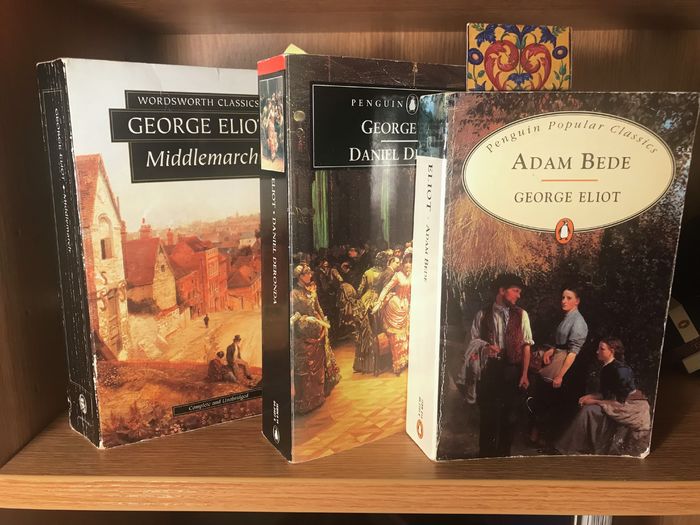Evaristo at the Cambridge Literary Festival
Arts Editor Famke Veenstra-Ashmore reflects on a talk held by the Cambridge Literary Festival, ‘Bernardine Evaristo in conversation with Irenosen Okojie’

Bernardine Evaristo speaks with the same dry, blunt, but insightful attitude that pervades her fiction. In conversation with passionate, MBE-winning writer Irenosen Okojie, she is just as candid as the voices she emulates in her 2019 Booker Prize-winning verse novel Girl, Woman, Other. It is through this fantastic text that I first looked into Evaristo’s work; she is a prolific writer with impressively diverse interests. Underlined by her exciting, experimental style, these texts are truly intriguing, as well as significant for the groups and identities which she explores and represents. Seeing her speak at the Cambridge Literary Festival was an amazing experience, if a little different to what I was expecting.
“The subtitle configures the memoir as yet another medium for Evaristo to express her own creativity”
The crux of my surprise was that Evaristo and Okojie were discussing a new text – Manifesto: On Never Giving Up, a creative and intimate memoir chronicling her experience as a young black woman, who was experimental with her sexuality, up to the difficulties of getting published in a white-dominated industry that frowned upon the kind of experimentation which Evaristo offers in her writing. Evaristo herself admitted in the talk that she didn’t want to create a traditional memoir, describing it as infused with creative elements that make figures and events in her life more colourful than superficially biographical. The way in which she recounted a few events – such as her return to the heterosexual dating scene in her thirties – was marvellously humorous; it is evident that even when discussing more serious subject matter she does not take herself too seriously.
Why write a memoir now? This isn’t Evaristo’s first foray into non-fiction; she is a renowned critic of literature, editor of journalistic articles and other long-form writing, and of course known for her social activism. Rather humorously, she tells Okojie that she wanted a break from fiction after the success of Girl, Woman, Other alongside its fictional complexity. When asked by an audience member which memoirs inspired her to write Manifesto, she doesn’t offer a direct answer, instead suggesting that it was her own reflections upon her life, alongside a desire to be creative in a new way, which inspired this new text. The subtitle On Never Giving Up certainly configures the memoir as yet another medium for Evaristo to express her own creativity, and to perhaps reach new audiences and corners of the literary world which she has yet to bring her attention to.
In this conversation, Evaristo and Okojie mediate on their experiences as black people, and as women, with Evaristo highlighting that her experience with blackness was tinted by living in a predominantly white neighbourhood. She also reflected on the strictness of her Nigerian father, describing his keenness for his children to blend into white British culture. Further, she emphasised how looking at her life in retrospect challenged many of the preconceived notions of her childhood. Originating from a large family with eight children, Evaristo suggested how she felt to be the outlier – but after maturing, and reflecting on her home life decades later, and realising the different perspectives of her siblings, she felt she had misjudged this part of her history. In taking a step back and retracing these experiences, it is evident that Evaristo has found some kind of solace – as well as frustration – in these shared, but perceptively different experiences.
An aspect that had to come up was Evaristo’s recent breakthrough into the mainstream of contemporary fiction. As it was for me, Girl, Woman, Other was for many their first interaction with Evaristo’s work. Evaristo spoke about the achievement of the Booker Prize with pride, as the first black woman, and first black British person to win, however, steered the conversation to focus on the absence of narratives from black women beyond the mainstream (though of course, fantastic) writing of figures like Alice Walker and Toni Morrison. The importance of portraying the black British experience appeared just as essential to Evaristo as the black female one. This extends to many other aspects of her work; she reflected on her work in creating Britain’s first theatre company for black women, as well as the creation of the Brunel International African Poetry Prize as all ways of extending her platform to other black writers.
Evaristo’s desire to increase the accessibility of writing is evident. The dedication and effort put into this memoir will serve to recount and promote her position in the literary field – hopefully lifting up other aspirational black, female, and overall unrepresented voices. This engaging talk preceded an engaging book which can be consumed now at your own pace, and promises to be candid, creative, and adventurous, while nonetheless revelatory about Evaristo’s journey as a writer.
Evaristo’s talk was part of the Cambridge Literary Festival (Winter, 2021) which you can find out more about here https://www.cambridgeliteraryfestival.com.
 Features / Should I stay or should I go? Cambridge students and alumni reflect on how their memories stay with them15 December 2025
Features / Should I stay or should I go? Cambridge students and alumni reflect on how their memories stay with them15 December 2025 News / Cambridge study finds students learn better with notes than AI13 December 2025
News / Cambridge study finds students learn better with notes than AI13 December 2025 News / Dons warn PM about Vet School closure16 December 2025
News / Dons warn PM about Vet School closure16 December 2025 Comment / The magic of an eight-week term15 December 2025
Comment / The magic of an eight-week term15 December 2025 News / News In Brief: Michaelmas marriages, monogamous mammals, and messaging manipulation15 December 2025
News / News In Brief: Michaelmas marriages, monogamous mammals, and messaging manipulation15 December 2025










